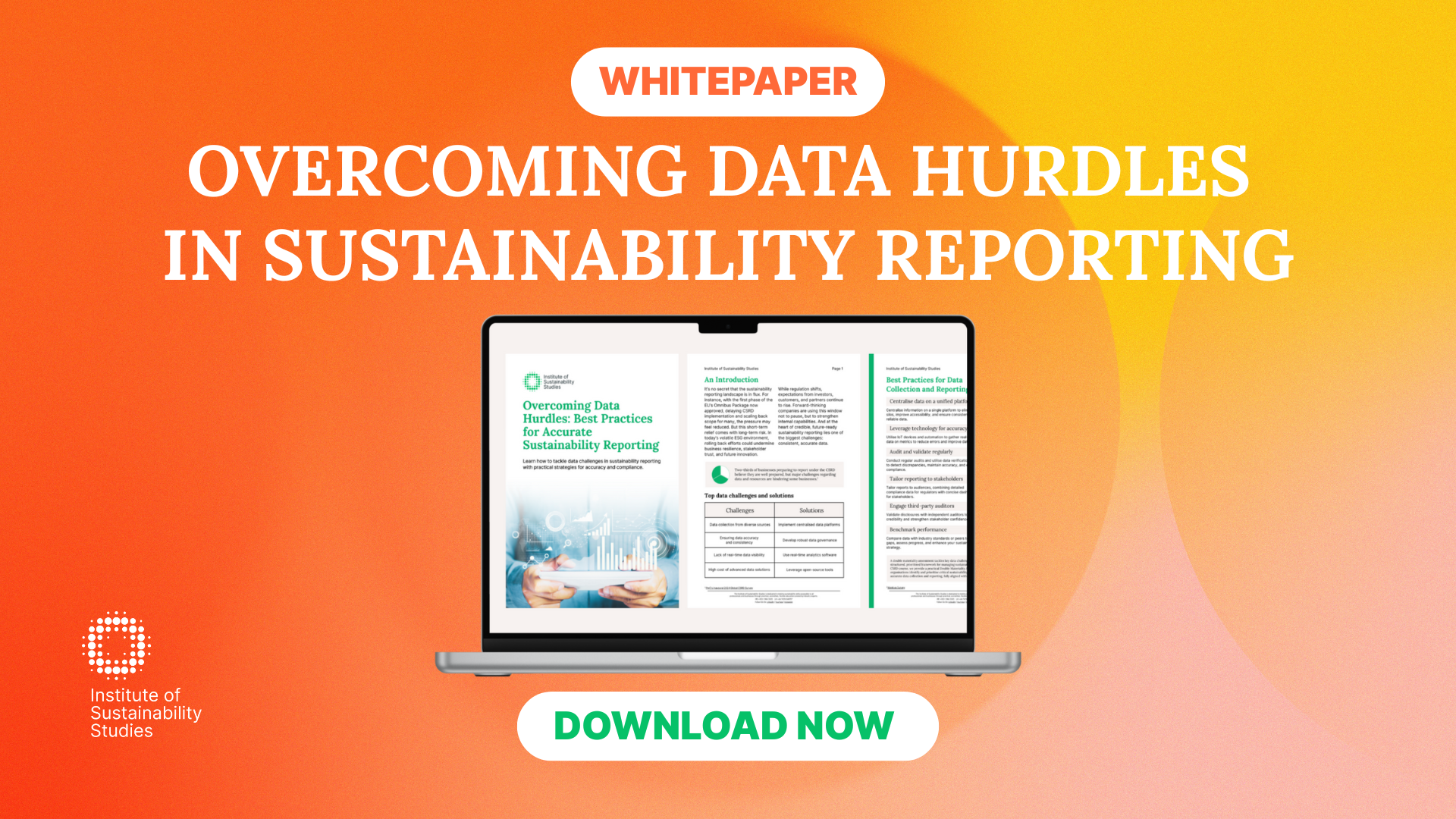According to the Global Footprint Network, the ecological footprint is the only metric that measures how much nature we have and how much nature we are using. It adds that this measurement helps local leaders to optimise public project investments, countries to enhance well-being and sustainability, and individuals to better comprehend their impact on the planet.
It is a way of measuring sustainability, which refers to the ability of a population to support itself without compromising the ability of future generations. Environmental sustainability is achieved when a population can support a certain lifestyle whilst still meeting the demands of the planet. With this in mind, being aware of and calculating it is an important part of business sustainability.
What is an ecological footprint?
The ecological footprint measures the amount of ‘biologically productive’ water or land that allows a population to sustain itself. This measurement takes into account the resources a population requires to produce commodities and eliminate waste. Pasture, arable land, and seabeds with marine life are examples of biologically active water and land.
Global hectares (gha) are the units for the ecological footprint, and this measurement allows professionals to identify the land area needed by every human to sufficiently meet their needs. In essence, this footprint tells us how dependent humans are on natural resources. It indicates how many resources from the environment are needed to support a certain way of business or life. This measurement indicates the amount of pressure we place on the natural resources available.
According to The World Counts, we extract 88 billion tonnes of natural resources from the planet each year. The ecological footprint calculates how quickly humans use resources and generate waste in comparison to how quickly the environment can replenish those resources and handle our waste. Our consumption of fossil fuels, forest products, fish and seafood, meat, build-up land, and cereals, for example, affect it.
Why is ecological footprint important?
Ecological footprint is the concept of calculating the environmental impact of human activity. It enables analysts to determine the rate at which humans generate waste and consume resources. Ecological footprint is an accounting measure that evaluates the demand and supply of nature. It tallies all productive elements for which populations generally compete.
This consists of all ecological and biological assets that a functioning population needs to create natural resources for sustenance. In terms of how to calculate ecological footprint, it can be measured for countries, regions, cities, businesses, individuals, and an entire planet. On a personal level, it tells you how much you consume and the impact of your activities.
For businesses, it can pinpoint areas where you need to make changes to engage in more sustainable behaviour. If we do not evaluate our ecological footprint, it can be very challenging for governments, businesses, and individuals to consider the consumption of ecological resources and take action to ensure a sustainable and prosperous future for current and coming generations.
How to reduce your ecological footprint</strong>
Reducing your ecological footprint involves making conscious choices to lessen your impact on the planet. Start by minimising waste: recycle and reuse where possible, and reduce consumption of single-use plastics and non-recyclable materials.
Opt for sustainable transportation methods such as biking, walking, carpooling, or using public transit. Embrace a plant-based diet as it typically requires less land, water, and energy than meat production.
Invest in energy-efficient appliances and make an effort to conserve water and electricity in the office. Additionally, support and buy from companies that prioritise sustainability in their practices and products.
There are also lots of calculators available online that will expose the areas where you can make improvements. Every small change contributes to a significant reduction in your overall ecological footprint. </span>
Summary
Understanding and calculating ecological footprint is crucial for assessing the environmental impact of human activities at various levels—from individual lifestyles to global business operations. This metric not only highlights the disparity between human demand for ecological resources and the planet’s ability to replenish them but also provides a concrete framework for action.
For businesses, it serves as a vital tool to identify areas where sustainability practices can be enhanced, thereby contributing to global efforts aimed at preserving natural resources for future generations. By integrating ecological footprint accounting into strategic planning, businesses and governments can make informed decisions that promote environmental sustainability and ensure the long-term viability of our planet.
Dedicated to harnessing the power of storytelling to raise awareness, demystify, and drive behavioural change, Bronagh works as the Communications & Content Manager at the Institute of Sustainability Studies. Alongside her work with ISS, Bronagh contributes articles to several news media publications on sustainability and mental health.
- Bronagh Loughlinhttps://instituteofsustainabilitystudies.com/insights/author/bronagh/
- Bronagh Loughlinhttps://instituteofsustainabilitystudies.com/insights/author/bronagh/
- Bronagh Loughlinhttps://instituteofsustainabilitystudies.com/insights/author/bronagh/
- Bronagh Loughlinhttps://instituteofsustainabilitystudies.com/insights/author/bronagh/









